Letter from Neukölln, Berlin
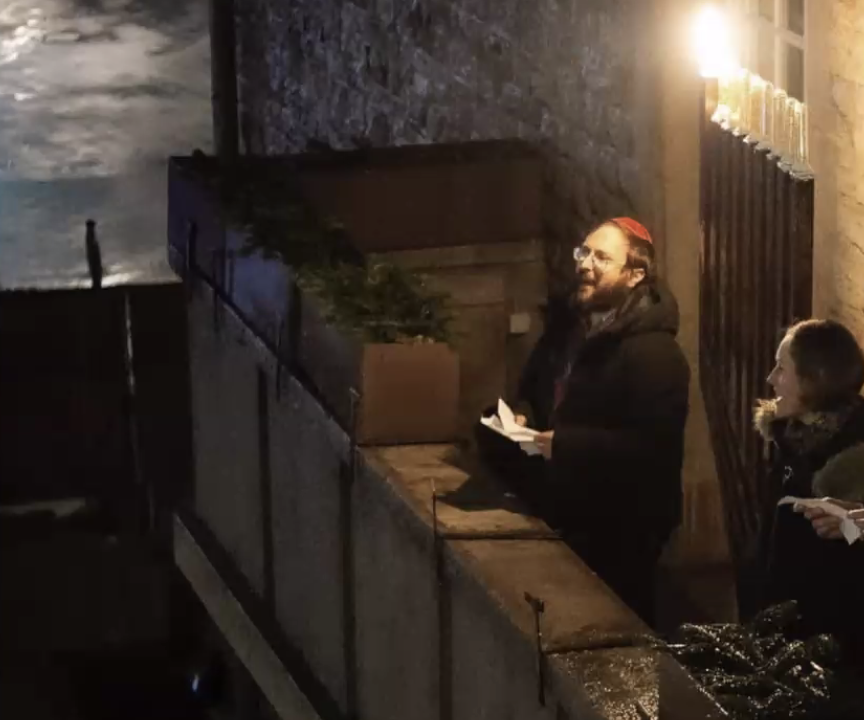
Since we moved to Berlin five years ago, we’ve lived in four different apartments, all clustered around a south Berlin neighborhood called Neukölln. Neukölln isn’t the traditional home for Berlin’s Jews, who are mostly concentrated in old west Berlin, or bourgeois Mitte and Prenzlauer Berg in the northeast. For many, Neukölln spells danger, a “no-go zone” for the city’s tens of thousands of Jews. With each move, our friends and colleagues asked: Are you sure? Do you feel safe? Yes, we said. We’re sure. We feel safe. Neukölln, with its large Arab and Turkish immigrant populations, smelling richly of baklava and kebab, with its many Palestinian residents who often painted their flag on local statues and subway platforms, would be both our new home and the home of Hillel Deutschland, a pluralistic center for Jewish life and learning.
When we first moved to the neighborhood, we began visiting local vegan restaurants to see if they would be interested in kosher certification. The most enthusiastic of these was owned by a burly Kurdish man named ZaZa. The first thing we learned about ZaZa was that he loves the Israeli parliamentarian Mickey Levy because they both hail from the same area of Kurdistan. ZaZa regularly practices the same dozen Hebrew phrases with every Jewish customer who walks in. Once, when ZaZa and Jeremy were walking down the street together, a man approached them and asked if Jeremy was an Israeli (a regular occurrence in our neighborhood). Before Jeremy could reply, ZaZa interjected, “And so what if we are?!”
Even with friends like ZaZa, we have often had to remind ourselves—a pair of Modern Orthodox-trained rabbis from New York—of what brought us here. It was a shared love and passion for Jewish life in Europe. Jeremy had spent several years living in Poland and Ukraine, and later worked for Moishe House as its European Director of Jewish Education. Rebecca is the granddaughter of four Holocaust survivors and always wondered what would her life would have been like if her grandparents had decided to remain in Europe.
Our shared passion for European Jewish life bloomed into a shared purpose. We believed in the potential and power of a Jewish community revived on the lands of the perpetrators of the Shoah. We also believed that we could challenge and help overcome the tendency of the Jewish community here to define their identity through the legacy of the Holocaust and the fight against antisemitism. We wanted instead to make Jewish pride, Jewish confidence, and Jewish visibility a matter of course in Europe.
Most Jewish institutions only held events on their premises; when we arrived, we had loud, festive Havdalah ceremonies by the Spree River and built Sukkot in beer gardens, in full view of passersby. Most Jewish institutions also had an established police presence and security outside their buildings; we hosted our community in our apartment. We thought that security meant institutionalism and a high barrier to entry. Although we never posted our address publicly, we also never hired security.
Our romantic vision collapsed, at least partially, in the German city of Halle, some four years ago, when a neo-Nazi gunman opened fire on the local synagogue on Yom Kippur (he failed to break into the synagogue but killed two passersby and injured two others). The moment defines us because we were there. We had taken a group of students from Berlin to join the mostly elderly Russian-speaking Jews who prayed at the city’s synagogue.
Hillel Deutschland headquarters opened in Neukölln in 2021, and we relocated to a private apartment down the street. But we were no longer naive; we had security. The tension of being in the center of a largely Arab neighborhood, layered with a certain pride of being one of the first and only Jewish organizations in the neighborhood, energized us to continue on our mission.
Before October 7, 2023, we largely avoided the topic of Israel in our activities. It simply was not an ingredient in our attempt to help stimulate European Jewish life—not even in light of the prominently displayed Palestinian flags on the building next door. In fact, our community was divided over Israel. Many of the Russian and post-Soviet Jews loved Israel passionately and publicly, while many of the American expats, and even more of the Israelis, distanced themselves from anything to do with it. We mediated between these groups, but we did not focus on the issue. Of course, we visited Israel, we had friends and family there, and yes, we cared about the place and its central role in our tradition. But it wasn’t at the center of our Jewish and professional lives.
On Saturday, October 7, while we were enjoying Shemini Atzeret, Olli, a burly German-born Jew who runs his own Krav Maga studio and the Jewish community’s most reliable private security business, suddenly knocked on our door to tell us the news. He came inside, removing a bulletproof vest and a body cam from his outfit. We made him a cup of coffee. An unfathomable number of people were being murdered in southern Israel, he said. At the same time, just one hundred meters away from our apartment, the Palestinian organization Samidoun was handing out sweets in celebration. “Now is not the time for naivete,” Olli said. “No games. Don’t show your Jewishness on the streets. No kippa. No talking in Hebrew. Stay anonymous.” In a word: hide.
In general, there aren’t very many visible Jews on the streets of Berlin, certainly not in Neukölln. But Jeremy has always worn his kippa in public here, despite getting yelled at, harassed and occasionally spat upon—until that moment. Suddenly, we were told, pride was not an option.
How much could we expect ourselves to obscure our identities in this moment, without losing sight of our core mission, without losing the core of who we are?
Through the 2019 Yom Kippur attack, the pandemic, the Ukraine war and refugee crisis, we had largely maintained our composure, developed a vision for our community, and held to it. Now, we didn’t know what to do or where to go. For two weeks, we hid. Authorities had banned demonstrations in solidarity with Palestine as a precautionary measure to repress emergent antisemitism. Police vehicles stationed themselves on every corner of our neighborhood. But every night from our balcony we could see smoke rising from fires set in the middle of busy avenues.
Hiding begets a feeling of hiddenness. Ironically, the more Berlin cracked down on pro-Palestinian demonstrations, the more we felt the need to live in obscurity. We paused hosting events at Hillel Deutschland. Fear among Berlin’s Jews spread like wildfire. Many members of the community stayed home for days on end, afraid to present themselves to the outside world.
Perhaps it was the fear that enabled us to return to our purpose. Although the initial warning to hide invoked memories from the city in its darkest days, we came to see that what we were facing was very different. Ultimately, we realized that although we could no longer be naive, we refused to be afraid of who we are.
While Shemini Atzeret feels both like yesterday and a year ago, Hanukkah is now here and one cannot truly fulfill the mitzvah of Hanukkah in hiding. According to the rabbis, an important purpose of the Hanukkah lights is Pirsumei Nisa, publicizing the miracle. So this year, on the fifth night of Hanukkah, we’ll still light our massive hanukkiah at the city hall of Neukölln, above the neighborhood’s main square. Despite it all, the Jews are still here, lighting Shabbat candles in Kfar Aza, putting on tefillin in the center of college campuses, and lighting Hanukkah candles in Neukölln.
Do we feel safe? Not as safe as we did on October 6th. But we aren’t going back into hiding.
Comments
You must log in to comment Log In
Suggested Reading
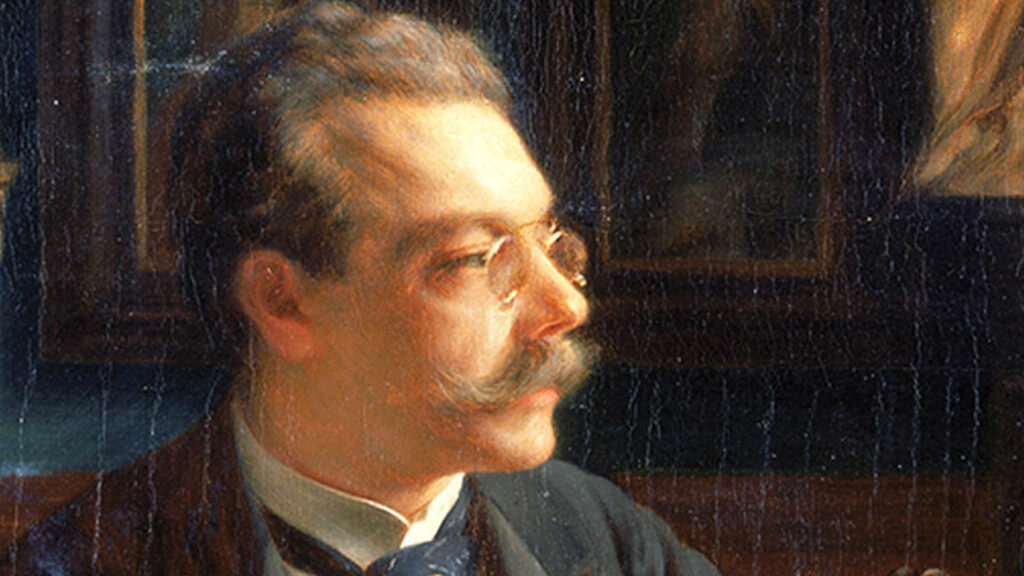
Remembering the Plutocrat and the Diplomat
Most things in Berlin speak to the city’s troubled past, and the newly opened James Simon Galerie is no exception.
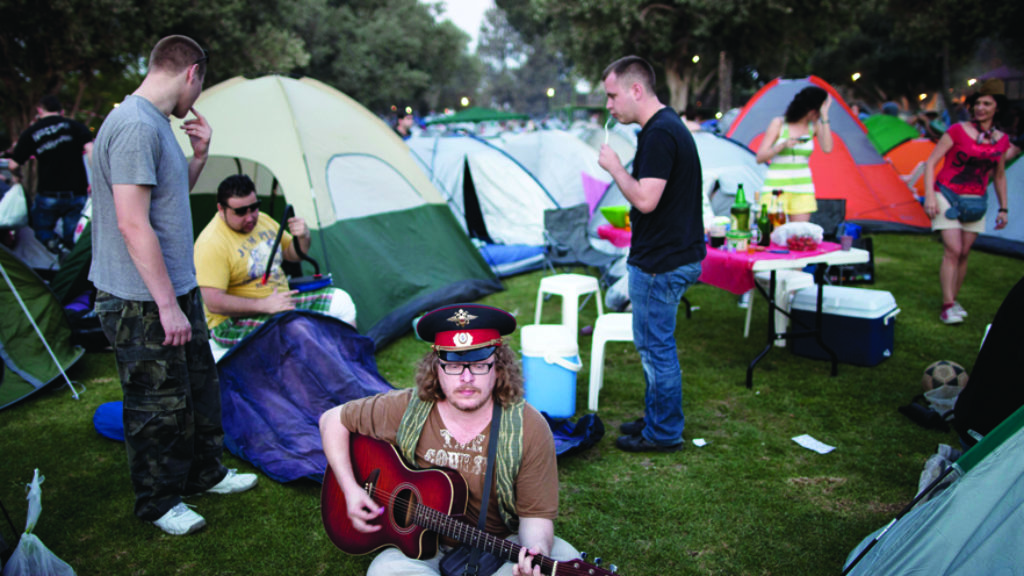
From Russia with Complications
In what ways is the Israel of the Russian aliyah an extension of the old and new Russia, and to the degree that it is, does this constitute a problem? A valuable report on the present state of affairs.
The Joy of Being Delivered from Jewish Schools Results in a Stiff Foot
Before he became a brilliant, radical, and disreputable Enlightenment philosopher, Solomon Maimon was a miserable cheder student.
A Very Jewish Encounter
The text is full of underlining, circled words or phrases, arrows, careful cross references, and copious comments in Yiddish, English, Spanish, and Hebrew. It’s what my students at Ohio State might call an “extreme reading.”
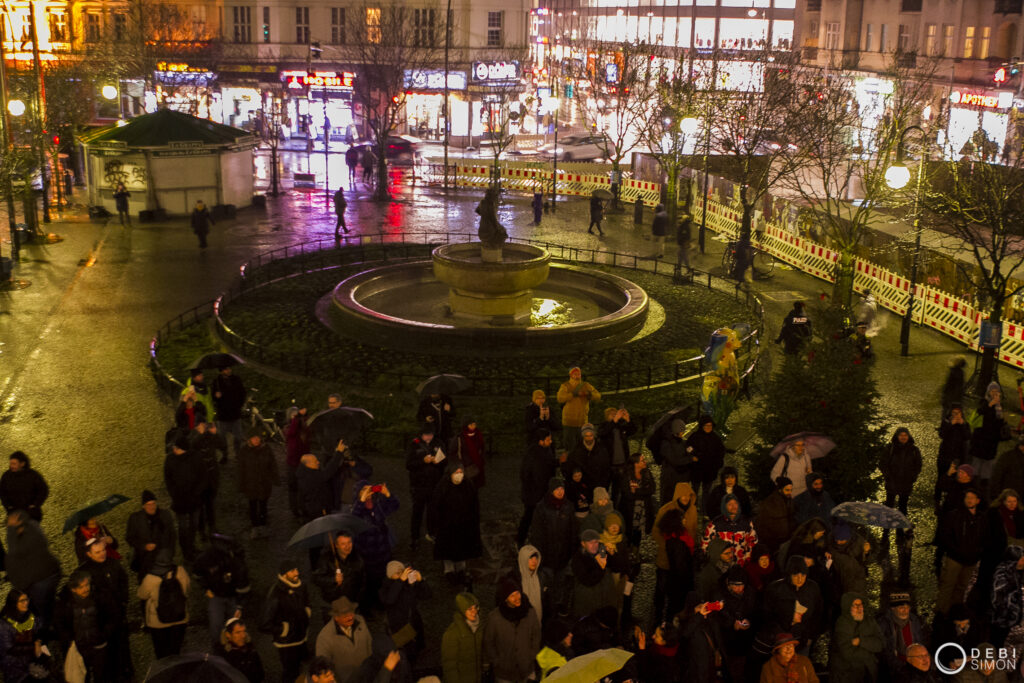
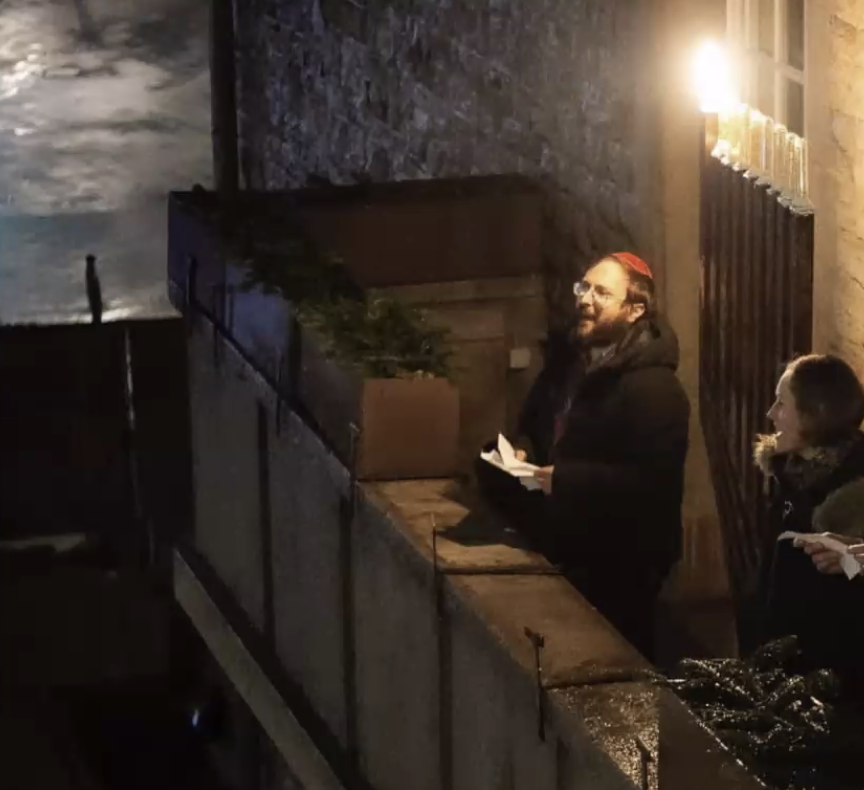
Harvey
We have visited Germany twice in the past two years. Always been fascinated with the great Jewish community of the past and the emerging new revived community. I find it very inspiring that Jewish Germany is a force in denying the Nazi’s plans.
You are doing important work . Yasher kochachem !
Harvey Lefkowitz
We have visited Germany twice in the past two years. Always been fascinated with the great Jewish community of the past and the emerging new revived community. I find it very inspiring that Jewish Germany is a force in denying the Nazi’s plans.
You are doing important work . Yasher kochachem !
Rosanne Hecht
Hi Jeremy and Rebecca. I have not seen you in a long time but you saw my sister Sherry not long ago.
I subscribe to The Jewish Review of Books and saw your article this morning. Very proud of what you are doing for the Jewish people. Stay safe and keep doing what you are doing in Germany. All of us must keep raising our voices and shouting to the world. We are not the people we were in the 1930s. We are strong and not afraid to make our voices heard.
Good luck and hope to see you and your beautiful children one of these days. Sherry showed me pictures
love, cousin Rosanne